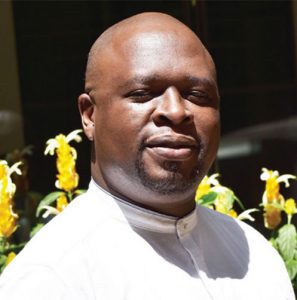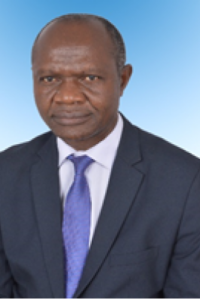
By Henry Owino
Kenya is marking the tenth year of its devolution in place since 2013 when the first regime came into power. This was 3 years after promulgation of the Constitution 2010 thereby terminating the 1963 Constitution of centralized government.
The County Governments are convening in Eldoret, Uasin Gishu County to mark 10 years of devolution existence. The Council of Governors (CoG) are therefore holding the 8th Devolution Conference 2023 from 15th-19th August, 2023.
The Council of Governors has successfully organized Seven Devolution Conferences across various thematic areas. This will be the First Biennial Devolution Conference after it was reviewed to have it held after every two years.
While everybody admits that devolution has brought decision-making closer to the people, the young people are of different opinions. The argument is that they have been relegated and completely forgotten in counties activities and programs.
Youth are up in arms complaining of discrimination regardless of their skills, knowledge and technical know-how. None want to listen to youth imperative efforts of advancing collective inclusion in county initiatives.
The young people now want their voices be heard in this year’s Biennial Devolution Conference in Uasin Gishu County. They are sending representatives to meeting to echo their grievances which have fallen into deaf years for long.
According to Mary Wanjiru, Coordinator Activista, many youth have tried to make devolution work for them through innovative skills but always get disappointed. A few are used to market the county programs then short changed when funds are available.
Wanjiru urges the county government to include youth in devolution processes if they endeavor prosper just like a few have done. This is because other counties have realized young people are noble and pragmatic necessity for fostering resilient communities when in included decision-making.
“Youth constitute significant portion of our population and are key stakeholders in the future development of our counties,” Wanjiru argued. Their active involvement ensures that policies and projects are relevant, responsive, and reflective of the needs of all citizens,” she affirmed.
Wanjiru emphasized that Kenyans are aware that Constitution 2010 envisioned decentralized decision-making, resource allocation, and uniform development in every part of Kenya. True to the spirit, devolution has brought decision-making closer to the people and has proven, in some counties, the potential to address localized challenges effectively.
However, for devolution to succeed in its objectives, it is imperative to include the perspectives and aspirations of young people. This is because youth are so creative and innovative and when their skills are tapped, it becomes catalyst of empowerment for county developments.
Subsequently, Wanjiru cautions that approach must align with the broader goals of long term, sustainable development and economic growth. By so doing, it provides youth with tools to actively participate in shaping their communities.
Victoria Adhiambo, Coordinator, Young Urban Women underscored the significance of nurturing the skills youth have to benefit counties. It is important to recognize the skills as indispensable expertise for their roles are not only for county developments but global progress as well.
Adhiambo hinted that this year Devolution Conference’s Theme is; “10 years of Devolution: the Present and Future,” resonates deeply well with the potential and significance of the youth, who embody both the present and future of this great nation called Kenya.
“The engagement and empowerment of our youth population are pivotal not only for the success of devolution initiatives but also for overall growth and sustainability of our communities,” Adhiambo stated.
Majority of youth leadership during the meeting unanimously resolved that it is high time counties infuse youth in their initiatives. It is best way of elevating the young people’s banner of skills towards development.
The leaders suggested that county governments can use their influential position to connect youth with agencies for partnership. It will help youth mold their destinies and actively contribute to regions’ growth.
“Some of our recommendation here can be implemented comprehensively without further delay, fostering an environment wherein our youth will evolve from being passive beneficiaries to engaged architects of devolution,” anticipated Kevin Kiogora, Youth & Community leader for Good Governance and Climate Action champion.
The other recommended initiatives listed by the young people include; Community engagement where workshops are organized, involving youth in town hall meetings, and youth-led forums that facilitate open dialogue between young people and local authorities. Such platforms would encourage youth to voice their opinions, propose ideas, and actively contribute to the decision-making processes of the county thus meaningful public participation.
Entrepreneurial support through establishing mentorship, incubation, and support networks for young entrepreneurs. They said it will encourage innovation, job creation, and economic diversification at the grassroots level.
Promote digital literacy among youth to enable them harness technology for personal and community development. Digital skills are essential for communication, accessing information, and participating in an increasingly digital world.
Encourage skills training programs through collaboration with educational institutions, vocational training centers, and industry partners to design and implement skills training programs that equip young people with practical, market relevant skills.
The youth however suggested that the programs should encompass a diverse range of fields, from technology and entrepreneurship to agriculture and healthcare.
“We put emphasis on Green skills because it requires; knowledge, abilities, values, and attitudes needed to live in, develop and support a sustainable and resource-efficient society,” Kiogora explained. These skills will not only help in addressing the climate crisis but also in helping achieve SDGs,” he added.
The youth who excel in various initiatives should be recognized and celebrated for their achievement and significant contribution to their communities as young individuals, team or organizations. Again, such youth achievements need to be encouraged by letting their representation in local councils, committees, and decision-making bodies in the counties or in national conferences.

















